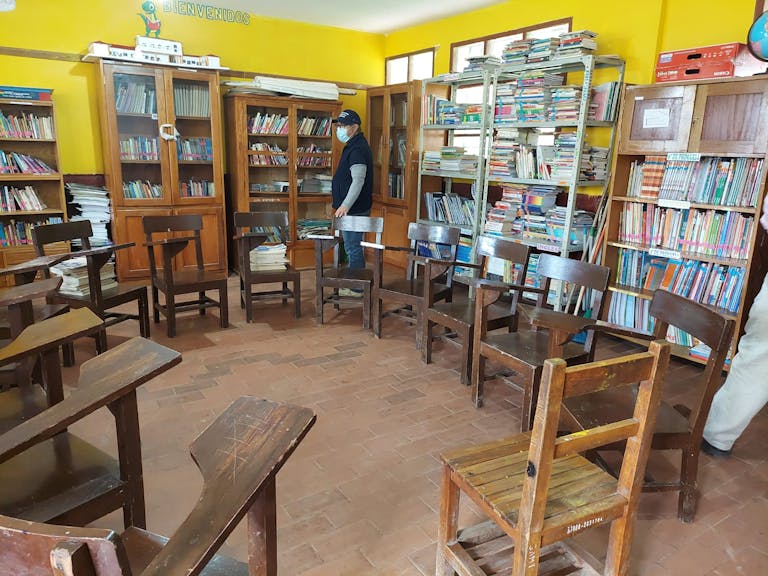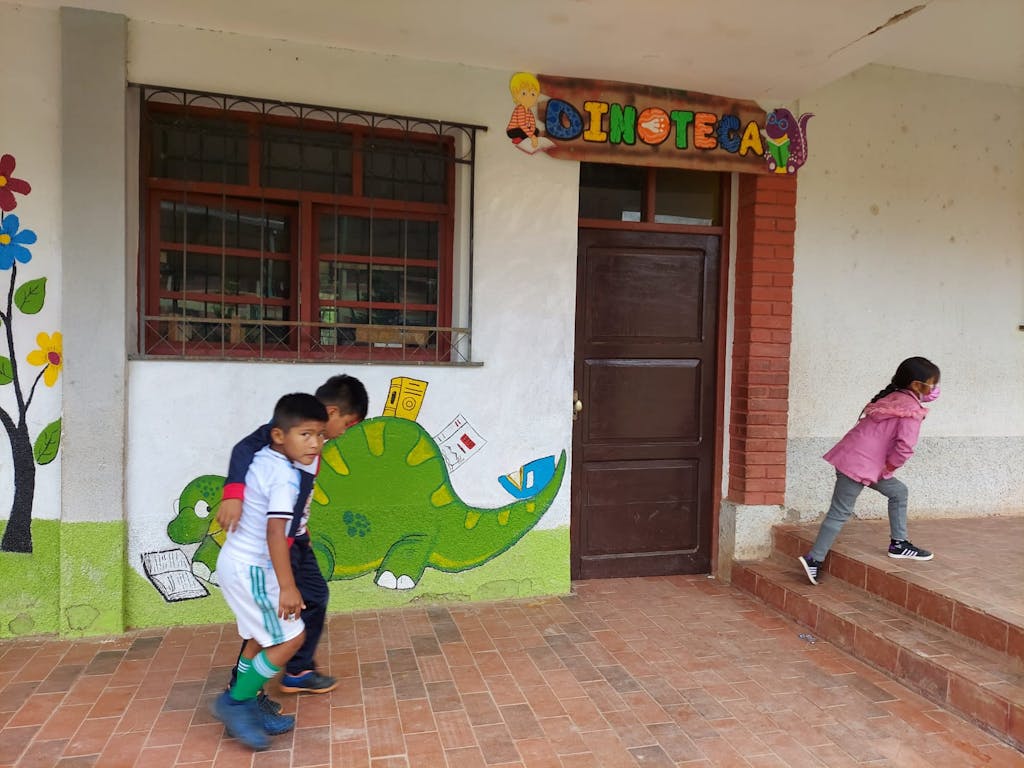Literacy is crucial to all learning, and Food for the Hungry (FH) understands the importance of a conducive learning environment to foster literacy among students.
The COVID-19 pandemic posed challenges for teachers and students worldwide, disrupting not only academic learning, but also their social and emotional wellbeing. The future of an entire community is at risk when children’s education suffers.
Teachers play a key role in supporting children and their families. But in order to do so, they must be physically and emotionally well themselves.
FH responded by developing a toolkit to help teachers improve their own well-being and helped provide psychosocial support to students. The toolkit achieved that goal and went on to provide space and inspiration for teachers to work together as a team, addressing the impact of school closures on their students’ literacy acquisition.
Mitigating COVID-19’s Threat to Literacy Gains
In the rural community of Toro Toro, Bolivia, teachers of the Mariscal Sucre school met to assess how to support their students in light of the effects of the pandemic.
As they expressed concerns that their students’ reading progress had fallen behind, an idea was born. The teachers, together with FH Bolivia and the community, established a library and also introduced 11 book clubs. They named their library the Dinoteca – a play on the Spanish word for library, biblioteca – to reflect the area’s abundance of dinosaur fossils.
The Dinoteca Library was designed with specific objectives, extending beyond merely providing access to books. Its purpose encompassed nurturing students’ reading habits through engaging book clubs, offering a social and educational space outside traditional classrooms, enhancing writing skills, promoting creativity, and involving parents.
The Dinoteca Library also became a space that revitalized teacher morale, wellbeing, and team cohesion.

As COVID-19 restrictions eased and classroom learning resumed, teachers encountered widespread learning challenges and diminished motivation among students. The library emerged as a hub where teachers not only supported students’ academic progress, but also received encouragement from each other.
Literacy Activities Build Relationships
The outcomes stemming from the Dinoteca Library have been remarkable. Students met multiple times a week at the library to participate in book clubs, and their reading and writing skills improved with each meeting. One teacher said, “It has become a space where students connect socially and emotionally with their teachers and with each other, while also developing excellent reading and writing.”
FH believes in promoting literacy for a world in transition, to build peaceful and sustainable societies. We celebrate the locally driven creation of the Dinoteca Library in Toro Toro, which serves as a compelling testimony to this transformative journey, leading to a strengthened community.
Jana Torrico is Senior Education Specialist at Food for the Hungry (FH). She is passionate about supporting teachers, caregivers, and communities to fully engage in children’s development and learning. She currently provides technical assistance for FH’s education programming in 18 countries. She lives in Guatemala.
See Similar Posts
Young Women Find Hope in Return to School
Strengthening Communities with Education
Writers, Illustrators Create New Book for Burundi’s Children



